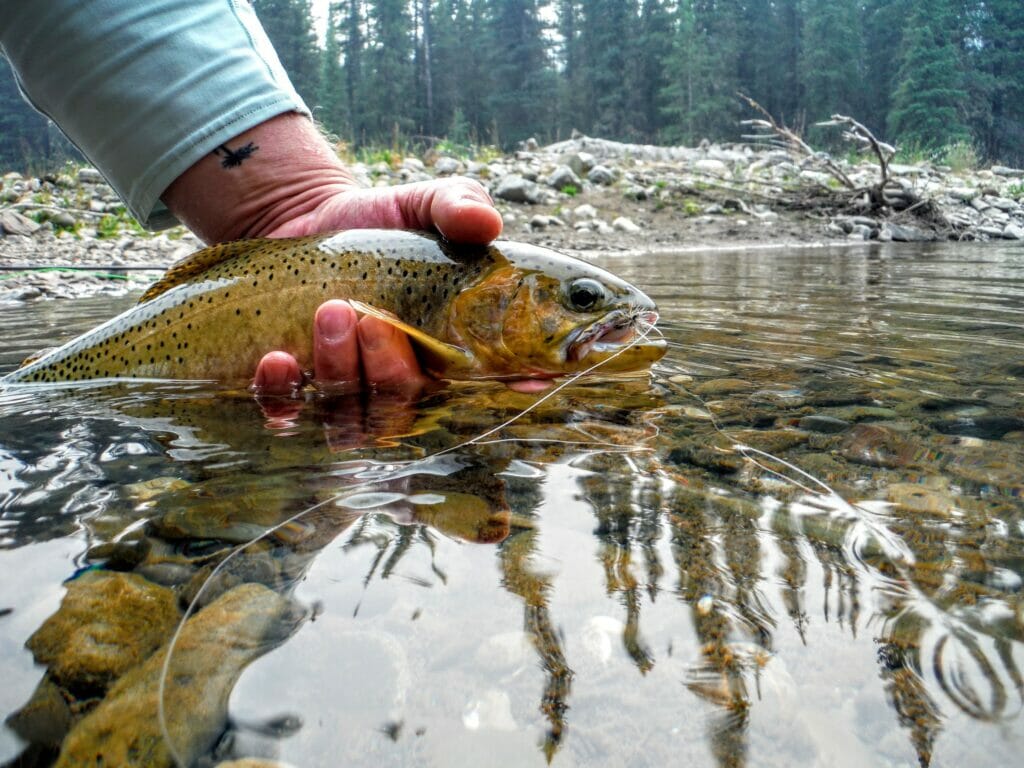
Native trout in our country face a daunting variety of threats, including climate change, drought, invasive species and degraded habitat.
Across the country, Trout Unlimited staff are working on the ground to give them a fighting chance—and those efforts were recognized recently when several TU projects received prestigious Bring Back the Natives grants, a partnership program between the National Fish and Wildlife Foundation (NFWF), the U.S. Forest Service, U.S. Fish and Wildlife Service, Bureau of Land Management, Bass Pro Shops and the Brunswick Public Foundation.
“Bring Back the Natives represents the benefits of coordinated efforts between private landowners and federal agencies to improve the health of watersheds,” said Jeff Trandahl, executive director and CEO, NFWF, in a release. “The fifteen grants announced today will continue to preserve iconic fish in our nation’s rivers including Chinook salmon, steelhead, eastern brook trout, sturgeon and other native species.”
Trout Unlimited projects received three of those grants: In Rock Creek, Montana, TU’s Rock Creek Native Trout Fish Passage and Habitat Improvement Project received $98,500 to restore bull trout and westslope cutthroat trout habitat in the Rock Creek watershed. Working with the U.S. Forest Service, BLM and private landowners, TU will replace irrigation infrastructure, install fish screens, protect and restore riparian habitat and improve stream flows to reconnect and restore tributary habitats, provide cooler water temperatures and help insulate native trout populations from climate change impacts.
In Washington, TU’s Wenatchee-Entiat Beaver Project was awarded $58,204 for a two-year pilot program to capture and relocate 30 beavers and install 40 beaver dam analogs—man-made beaver dam structures—to restore degraded habitat for the benefit of Chinook salmon, steelhead, and bull trout (all listed under the Endangered Species Act) as well as native cutthroat and rainbow trout.
In the Upper Delaware River Basin in New Jersey, TU’s Expanding Native Eastern Brook Trout Patches project was awarded $89,993 to reintroduce, restore, reconnect and protect native eastern brook trout habitat in the Paulins Kill, Musconetcong and Pequest sub-watersheds. The project will initially focus on restoring riparian and in-stream spawning habitat, followed by reintroduction of a heritage strain of eastern brook trout. The project ultimately will reconnect and restore some 7.5 miles of high-value brook trout habitat.
“The habitat improvements will not only benefit the native brook trout that we will be reintroducing, they will create positive benefits for the overall health of the watershed,” said Cole Baldino, Trout Unlimited’s New Jersey coordinator of work in the Delaware River watershed. “We hope it’s a catalyst for future work.”
“Working with our partners, Trout Unlimited is spearheading efforts nationwide to protect and restore native trout populations and habitat—and these grant awards will help give our project staff greater capacity to get this important conservation work done,” said Warren Colyer, co-director of TU’s Western Water and Habitat Program. “We’re very grateful to our Bring Back the Natives partners for these generous project grants.”
For more information, contact Warren at wcolyer@tu.org, 406-541-1193.


